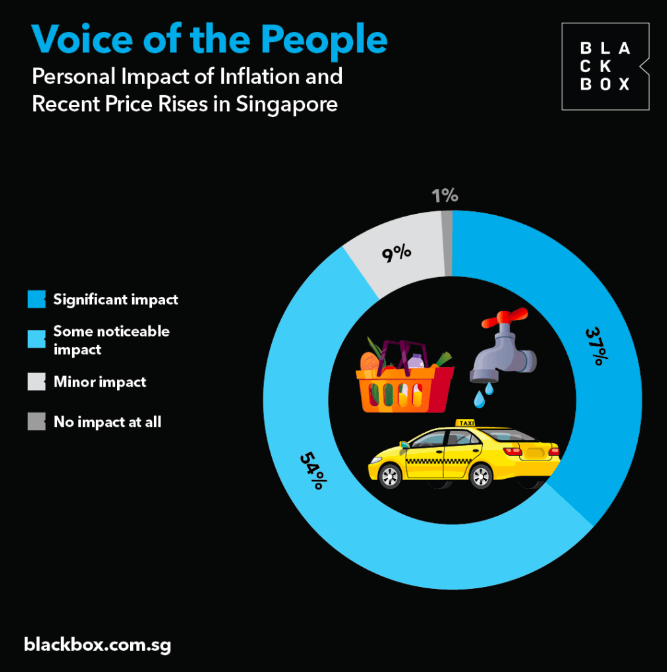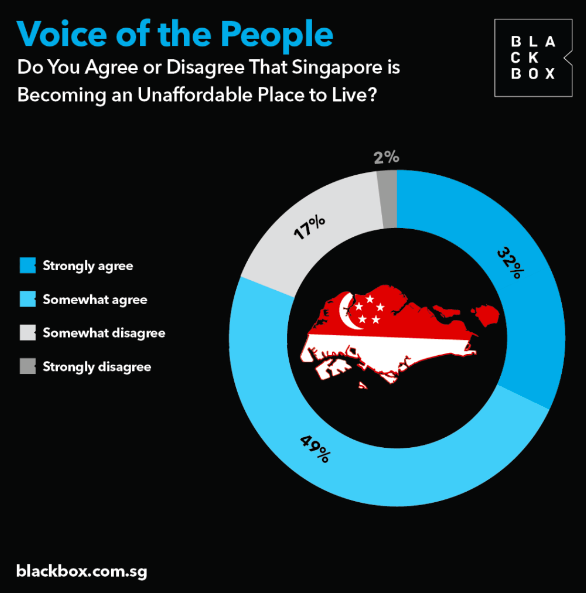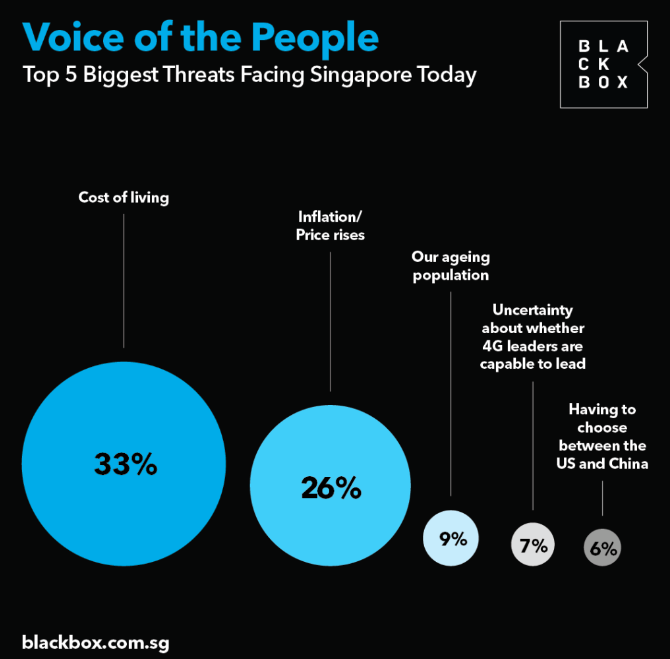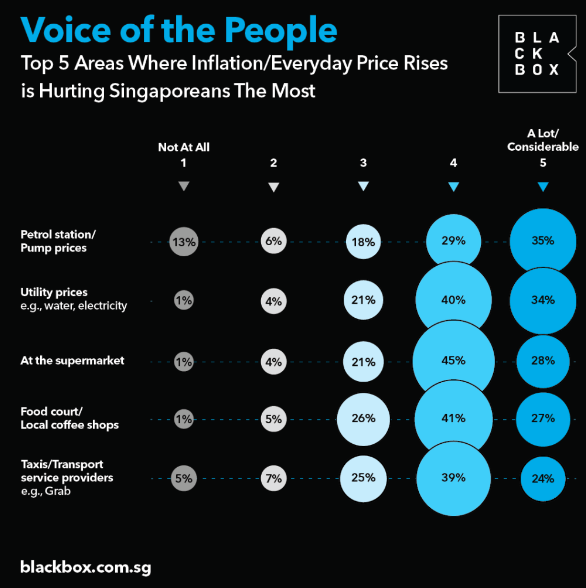A study conducted last month by Blackbox Research showed that many in Singapore are feeling the effects of recent price increases. Over nine in 10 of the survey’s respondents said that inflation has affected their lives and 37 per cent report that the impact has been significant.
Furthermore, the survey showed that 32 per cent of respondents strongly agreed that Singapore is becoming an unaffordable place to live, with 49 per cent somewhat agreeing.

Blackbox’s polling survey took a look into the key issues that newly-appointed Deputy Prime Minister (DPM) and PM-in-waiting Lawrence Wong will need to tackle, with the cost of living and inflation as the most pressing issues.

Mr Wong appeared to enjoy the support of most of the survey’s respondents, with 63 per cent expressing they have a positive view of him being the next leader of the ruling People’s Action Party.
Eighteen per cent of those surveyed said they were “very positive,” and 45 per cent said they were “quite positive.”
Nevertheless, Mr Wong “will need to demonstrate decisive leadership like his predecessors for the public service to take reference from considering Singapore’s future policy challenges,” Blackbox noted.
In the survey, respondents also identified the top five biggest threats facing Singapore today: Cost of living (33 per cent), Inflation/Price rises (26 per cent), Ageing population (9 per cent), Uncertainty about whether 4G leaders are able to lead (7 per cent), and having to choose between the US and China (6 per cent).

As to where price increases are hurting Singaporeans the most, the following emerged as the top concerns: Fuel prices, utility prices, supermarket prices, food court and local coffee shop prices, and the prices of taxi or ride-hailing services.

The founder and chief executive officer of Blackbox, Mr David Black, has been quoted as saying, “A perfect storm has emerged post-pandemic that will test the Singaporean government over the next 12 months as it not only seeks to bring about a speedy recovery but also bed in new political leadership.” /TISG

